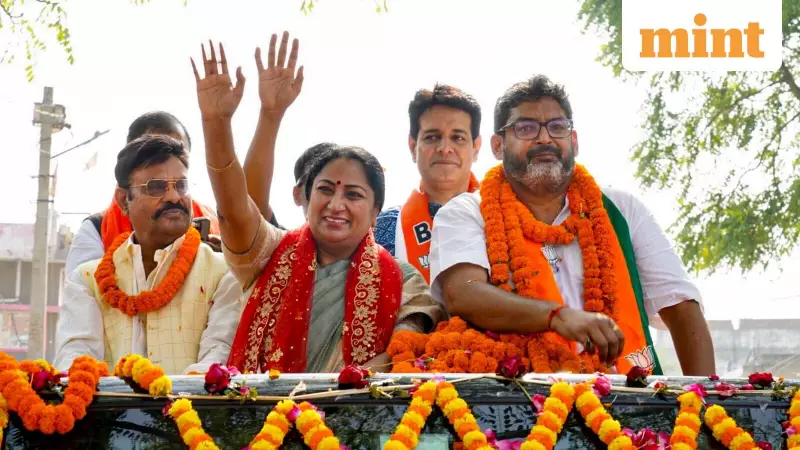
In a blistering verbal assault that has set political circles abuzz, Delhi Chief Minister Rekha Gupta launched a scathing attack on prominent opposition leaders Rahul Gandhi and Tejashwi Yadav, branding them with the controversial labels of "nalayak" (worthless) and "khalnayak" (villain) respectively.
Election Season Verbal Warfare Escalates
The sharp remarks came at a critical juncture as Bihar voters headed to polling stations for assembly elections, adding fuel to an already heated political atmosphere. CM Gupta's choice of words represents one of the most personal attacks in recent political discourse, signaling an intensification of campaigning rhetoric.
Targeting Political Dynasties
Gupta's comments appear strategically aimed at two of India's most prominent political families. Rahul Gandhi, scion of the Nehru-Gandhi dynasty, and Tejashwi Yadav, heir to Lalu Prasad Yadav's political legacy, both represent significant opposition forces that the ruling party has consistently targeted in its political narrative.
The timing of these remarks is particularly significant, coming during the crucial Bihar assembly elections where every word carries weight and can potentially influence voter sentiment. Political analysts suggest such strong language is designed to polarize the electorate and consolidate the ruling party's support base.
Historical Context of Political Name-Calling
This isn't the first time Indian politics has witnessed such personal attacks. The term "khalnayak" gained political prominence in the 1990s when it was used to describe certain leaders, while "nalayak" has been periodically deployed in political discourse to question opponents' capabilities.
However, the directness and timing of CM Gupta's comments have raised eyebrows even among seasoned political observers, who note the increasing sharpness of political exchanges as election seasons intensify across states.
Broader Political Implications
The attack reflects several key aspects of contemporary Indian politics:
- Increasing personalization of political criticism
- The strategic use of emotionally charged language during elections
- The ongoing battle between the ruling party and opposition alliances
- The importance of Bihar in national political calculations
As voting continues in Bihar, the impact of such statements on ground-level politics remains to be seen. What's clear is that the gloves are off, and political discourse has entered a particularly aggressive phase.






